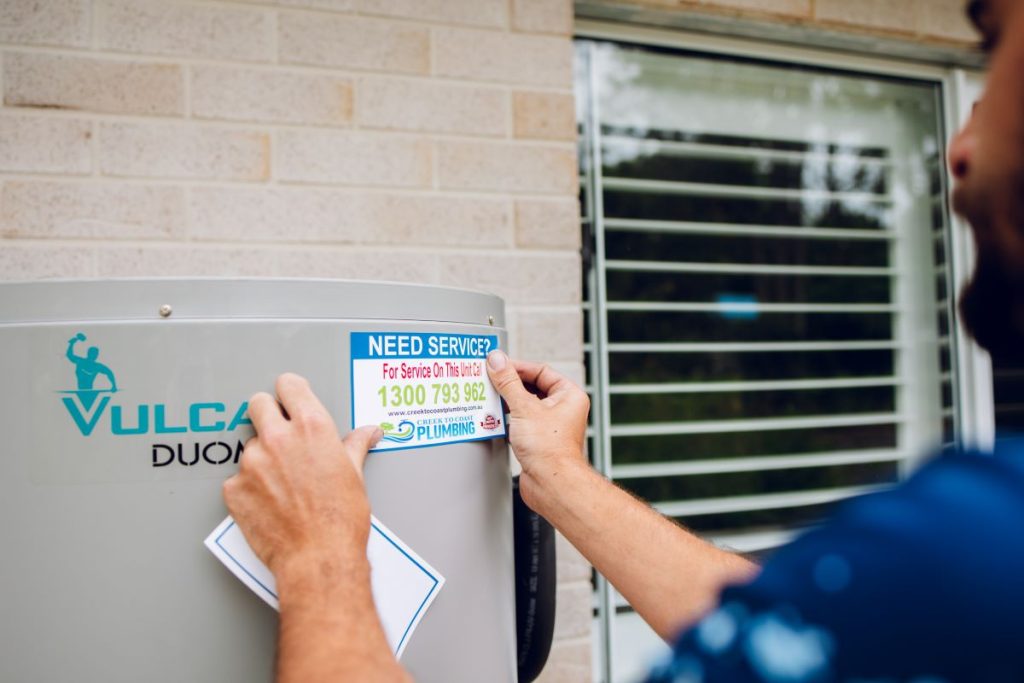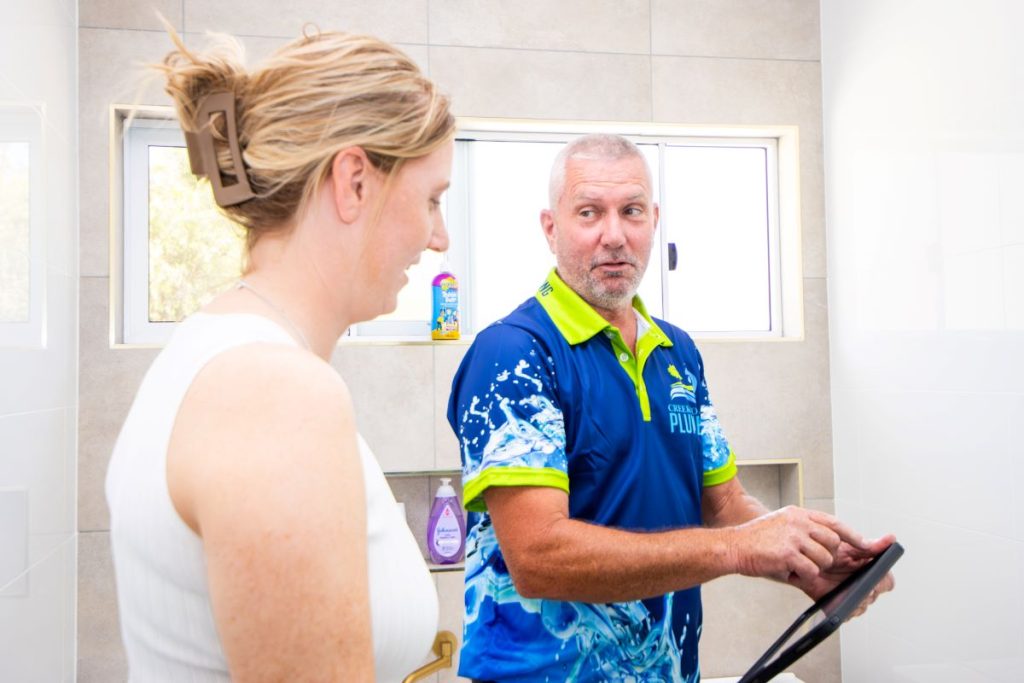Your cart is currently empty!
Hot Water System Lifespan for Queensland Homes Explained

Hot water systems play a crucial role in our daily lives, diligently supplying hot water whenever required. However, like all household appliances, these systems have a finite lifespan and will eventually need to be replaced. Being aware of the key indicators that signal your hot water system is due for replacement can help you avoid uncomfortable experiences such as unexpected cold showers, the risk of water damage, and costly emergency repairs that can disrupt your daily routine and budget.
What is the typical lifespan of a hot water system? The expected longevity of these systems can differ widely, depending on the type you own and how well it has been maintained. By conducting regular inspections and providing proper care, you can significantly prolong its lifespan while ensuring consistent and reliable performance.
Let’s take a closer look at the specifics to gain a better understanding.

Understanding the Lifespan of Various Hot Water System Types
Here’s a general overview of what to expect regarding the lifespan and performance of the most common hot water systems utilized in Queensland homes:
Electric Storage Hot Water Systems
- Expected Lifespan: 8–12 years
- Common Reasons for Failure: Typical issues include internal corrosion, deteriorating anode rods, and sediment accumulation that can impede overall performance.
- Signs to Watch For: Stay alert for rusty or discolored water, leaks around the base of the unit, or longer heating times, as these may indicate deeper problems.
Gas Storage Hot Water Systems
- Expected Lifespan: 8–12 years
- Common Reasons for Failure: These systems can face similar issues as electric models, but they may fail sooner, especially in coastal areas with salty air.
- Signs to Watch For: Look out for pilot light malfunctions, lower than expected water temperatures, or unusually high gas bills, which can indicate inefficiency.
Instant Gas Hot Water Systems (Continuous Flow)
- Expected Lifespan: 10–15 years
- Reasons for Longevity: The absence of a storage tank significantly reduces the chances of corrosion, which often leads to system failures over time.
- Signs to Watch For: Be vigilant for fluctuating water temperatures, ignition failures, or a noticeable drop in water flow rate, which could indicate a need for maintenance.
Electric Instant Hot Water Systems
- Expected Lifespan: 10–15 years
- Common Issues: Failures can frequently arise from malfunctioning heating elements or thermostats, which may jeopardize system performance.
- Warning Signs: Be cautious if your water temperature fluctuates between hot and cold or takes longer than usual to reach the desired temperature, as these may signal underlying issues.
Heat Pump Hot Water Systems
- Expected Lifespan: 10–15 years
- Efficiency Ratings: These systems are known for their high energy efficiency, but they can be sensitive to climate and installation location, which can influence performance levels.
- Signs of Trouble: Indicators of potential trouble include louder than normal operation, extended heating cycles, or rising energy bills, all of which suggest a need for inspection.
Solar Hot Water Systems
- Expected Lifespan: 15–20+ years for the solar panels, while the storage tank typically lasts 8–12 years
- Important Note: In most cases, the storage tanks tend to degrade before the solar collectors, which can impact overall system performance.
- Signs to Monitor: Be attentive if the water fails to heat on cloudy days, or if you notice rusty water or complications with the booster operations.

Identifying Key Warning Signs of a Failing Hot Water System
Even prior to reaching their expected lifespan, hot water systems can start to show warning signs indicating they may be under stress. These concerning indicators include:
- Fluctuating Water Temperatures
If your water takes longer to heat up or runs out more quickly than it used to, it may be time to investigate the underlying problems. - Rusty or Discolored Water
This often signifies corrosion within the tank or a failing anode rod, both of which necessitate immediate attention to avert further damage. - Unusual Noises
Sounds like popping, gurgling, or banging during the heating cycle frequently indicate sediment buildup inside the tank, which can impair efficiency. - Leaks or Standing Water
Even a small drip can indicate that your tank may be cracking or that the valves are beginning to fail, which requires prompt inspection. - Increased Energy Bills
An aging unit often struggles to generate the same volume of hot water, compelling it to work harder and leading to elevated energy costs.
Understanding How Seasonal Changes Affect Hot Water System Performance
In Queensland, the transition from warm to cooler months can present significant challenges for older hot water systems. As outdoor temperatures drop, these systems must work harder to maintain the desired water temperature, and those nearing the end of their lifespan may experience complete failure during this critical period.
Recognizing When It’s Time to Replace Your Hot Water System
If your system exhibits any of the following characteristics, it may be time to consider replacing it:
- Over 10 years old
- Frequently experiencing breakdowns
- Failing to meet your household’s hot water needs
- Exhibiting visible signs of wear or corrosion
If you identify these indicators, it may be the right moment for an upgrade.
At Creek to Coast Plumbing, we do more than simply replace your unit; we also evaluate various factors such as your family size, water usage habits, energy preferences, and the layout of your property to recommend the most efficient and cost-effective hot water system tailored specifically to your needs.

Making Informed Decisions: Choosing the Ideal Hot Water System for Your Home
Based on your unique needs and household requirements, our expert team may recommend:
- Electric or Gas Storage systems known for their reliability and cost-effectiveness, making them suitable for traditional homes.
- Continuous Flow (Instant) systems that are ideal for smaller homes or households with lower hot water consumption needs.
- Heat Pumps which provide substantial energy savings, particularly advantageous in warmer climates.
- Solar Hot Water systems designed for long-term cost savings and environmental sustainability, promoting a greener lifestyle.
Additionally, we assess whether the current location of your hot water system is optimal or if relocating it could enhance efficiency and performance.
Seize the Opportunity for a Hot Water System Upgrade
Replacing your hot water system at the appropriate time is not solely about preventing system failure; it also offers a chance to upgrade to a more reliable, energy-efficient model that better aligns with your lifestyle and needs.
If your unit is showing signs of aging or if you are uncertain about which system is best suited for your home, the licensed plumbers at Creek to Coast Plumbing are ready to provide you with expert guidance tailored to your specific situation.
The Article: Hot Water System Lifespan: A Guide for Queensland Homes first appeared on https://writebuff.com
The Article Hot Water System Lifespan Guide for Queensland Homes Was Found On https://limitsofstrategy.com
Leave a Reply